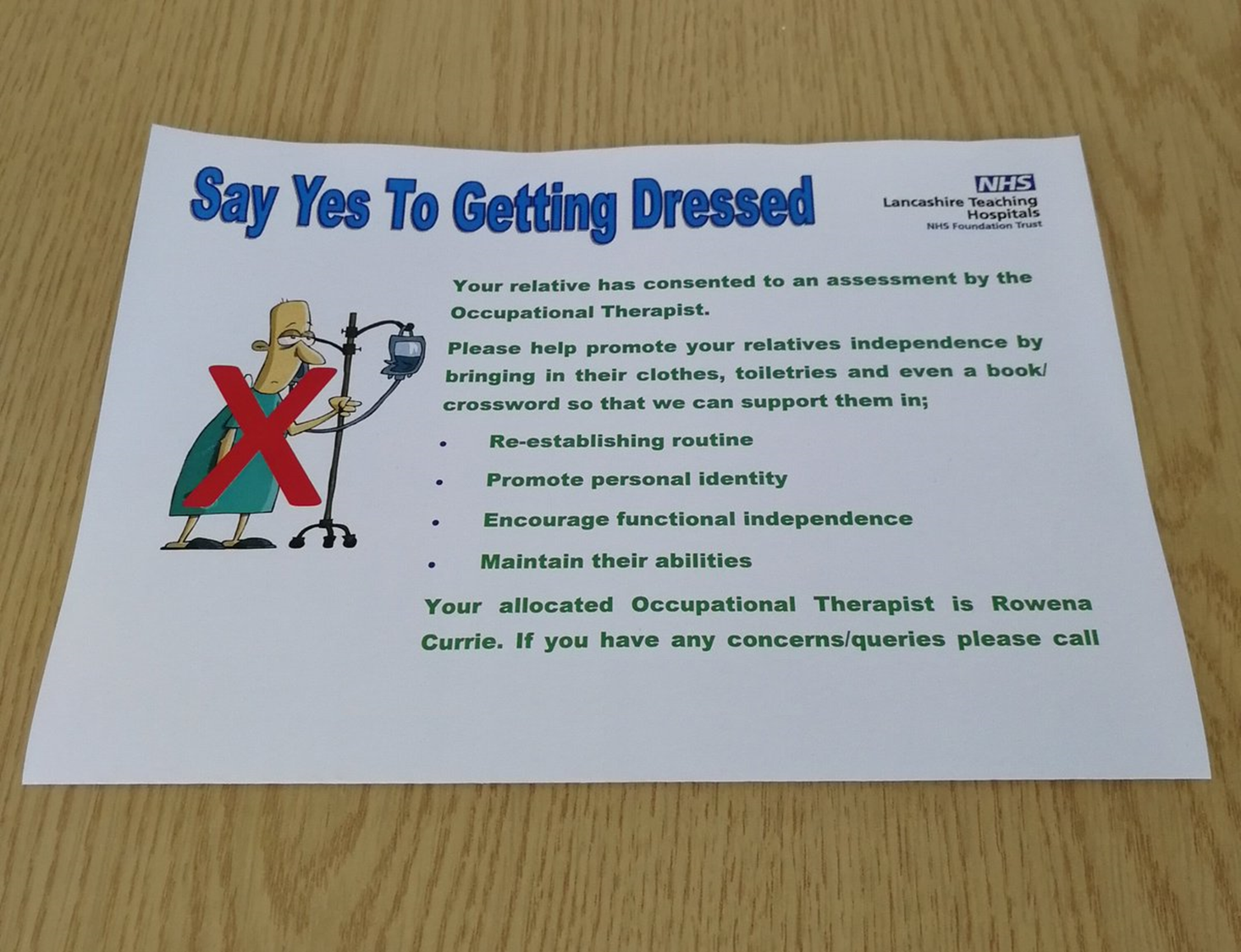Occupational therapists within the acute medical team are now using contact cards which provide written information to patients about which occupational therapist will be looking after them during their stay, as well as their contact details should they have any questions or concerns. Occupational therapists aim to promote independence, maintain abilities and skills, and encourage patients to continue their ‘normal’ routines as much as possible when in hospital, with appropriate risk assessment.

There is a large amount of evidence to support this approach to reduce deconditioning and support both physical and mental well-being; which aims to promote quicker recovery, enabling the patient to return home sooner.
Rowena Currie, Clinical Lead Occupational Therapist at Lancashire Teaching Hospitals, implemented this initiative and hopes that it will be adopted more widely. Rowena said: “As we all know, whether we have been a patient or a relative to one, they meet so many different people and it can be challenging to recall who you have met. In the acute team, we meet patients early on in their hospital stay, when they are suffering ill health and, inevitably, this is a very stressful time for them. A large proportion of our patients can also have cognitive impairments, so these cards can provide memory recall. I thought that something as simple as a contact card would be helpful to improve this. Not only does it inform them who I am, but it also gives them the opportunity to call me if they have any queries or concerns. As an occupational therapist, we are duel trained in mental health so we have the skills to support people who are stressed and anxious as well as being able to support and reduce some of these stressors.The most important message I wanted to get across is that we should be empowering our patients and their relatives/friends. During this time, people feel very vulnerable and helpless and I have been asked before by patients “am I allowed to get dressed?” which highlights how vulnerable and unsure patients feel.”
The initiative also ties in with activity around the hospitals to support the national End PJ Paralysis campaign. This campaign aims to promote making an additional effort to ensure that patients get up and out of bed whilst they are in hospital. These simple actions can prevent deconditioning and loss of independence, and reduce length of stay in hospital. Evidence shows that for patients over the age of 80; a week in bed can cause 10 years’ worth of muscle ageing and muscle loss. For those patients who aren’t able to get out of bed, sitting up (if safe and appropriate) can have benefits too.
